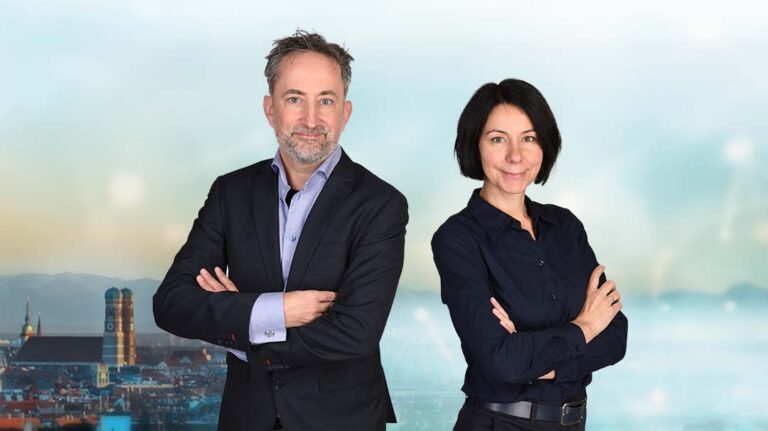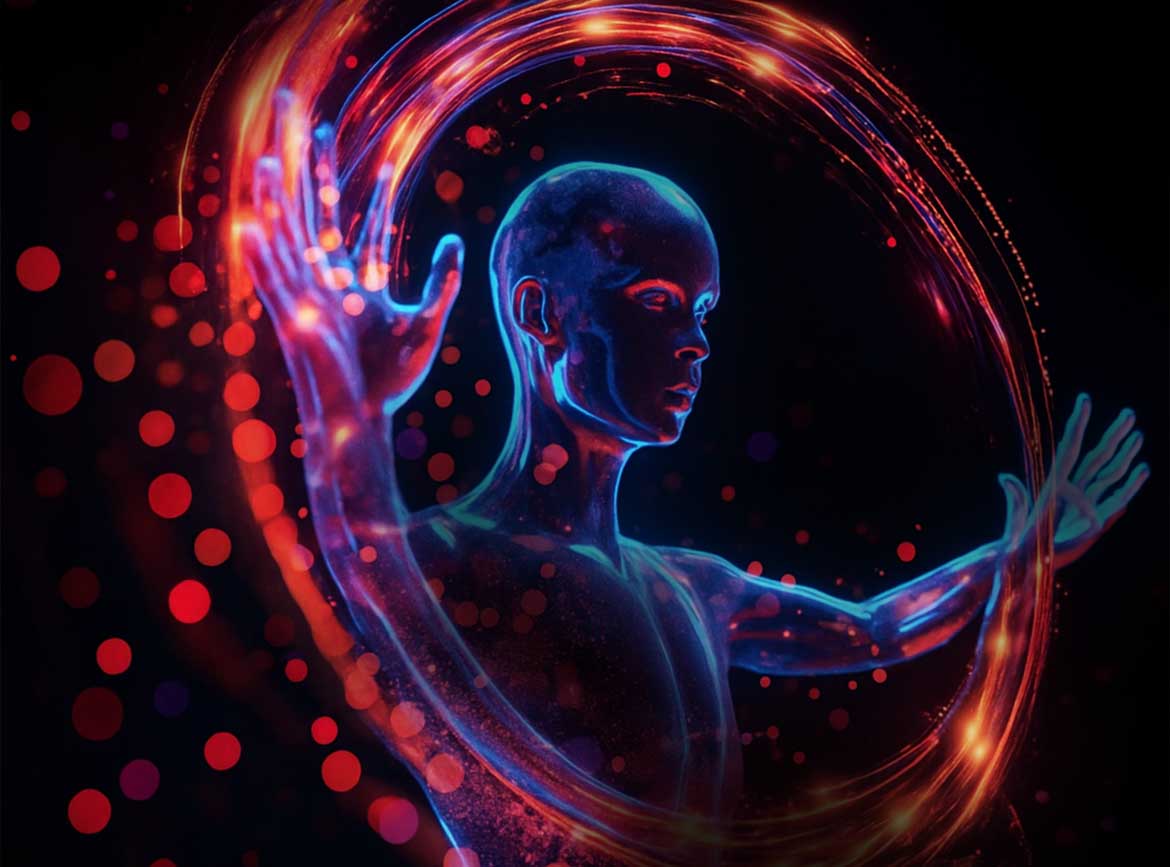Gaussian Splatting – From Research to Stage and Industry
Image: © Ulrich Buckenlei | Visoric 2025
What is Gaussian Splatting – and why is it relevant?
Gaussian Splatting is a new method for quickly generating a realistic 3D model from photos or short scans that can be displayed in real time. Instead of calculating complex polygon models, the technique uses many “Gaussians” – small, soft 3D points – that come together to form a photorealistic image. The result looks organic, loads instantly, and can be moved, scaled, and combined live. For teams in music, brand communication, and industry this means: faster results, less preparation, and more creative freedom.
- Fast capture → from minutes to a few hours instead of days
- Real-time rendering → smooth visualization on standard hardware
- Flexible use → stage, showroom, training, digital twins
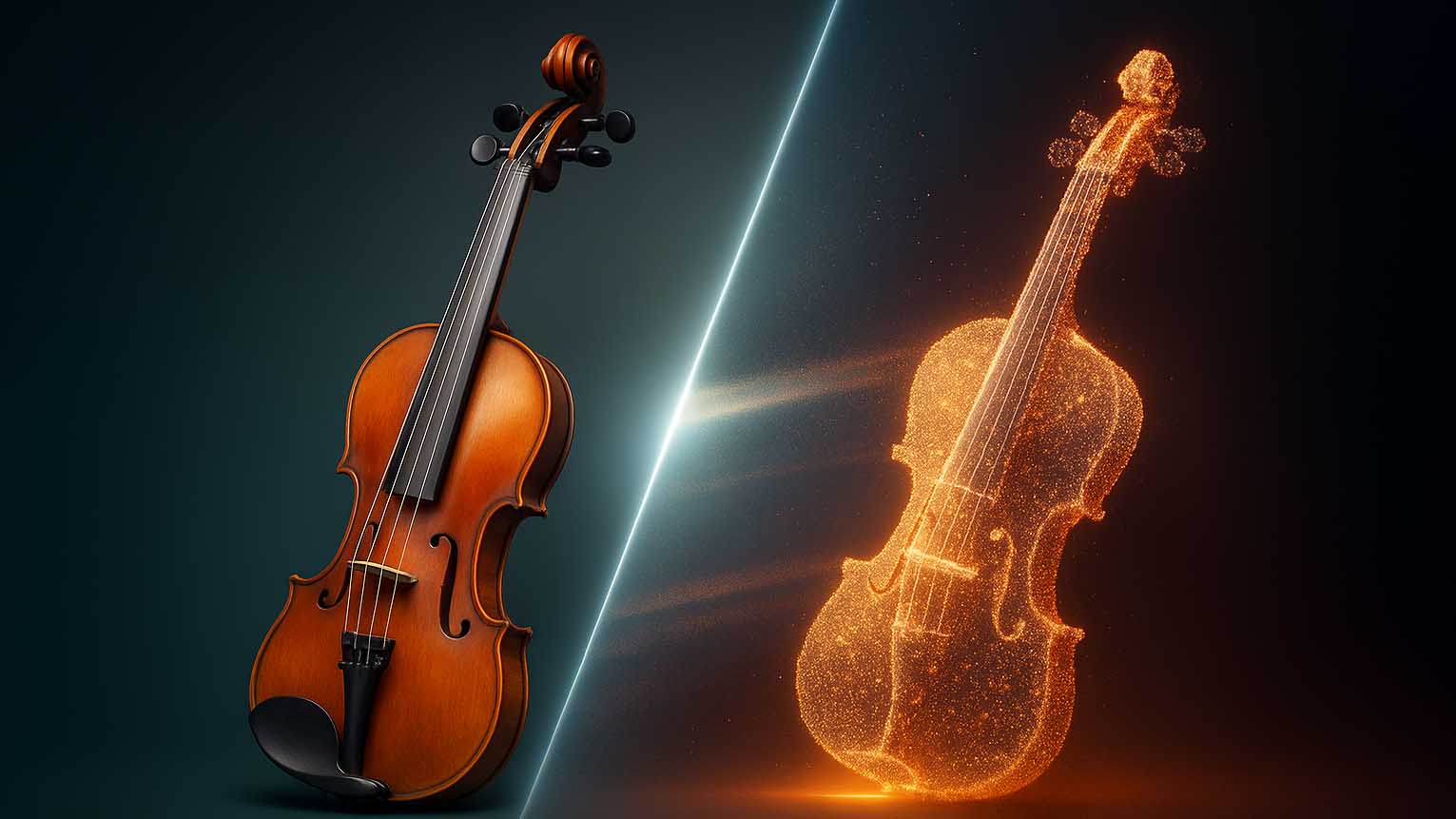
Gaussian Splatting shortens the path from photo to experience: realistic, fast, live.
Image: © Ulrich Buckenlei | Visoric 2025
The core benefit: content becomes accessible faster. Where rendering times once slowed progress, interactive experiences now accelerate decisions, training, and presentations.
Designed for the stage: How VJs merge music and real-time 3D
A VJ (Visual Jockey) designs live images and effects synchronized with music. With Gaussian Splatting, real objects, stage spaces, or performances can be quickly captured as 3D assets and directly integrated into the show. The result is a vivid mix of sound, light, and space that can be adapted spontaneously – without long pre-production.
- Live pipeline → Scan/Photo → Gaussian model → Real-time playback
- Creative freedom → Spaces, props, and performers become part of the visuals
- Reusability → one asset, many shows and formats

From scan to show: 3D assets are integrated live into the set in fractions of a second.
Image: © Ulrich Buckenlei | Visoric 2025
The same approach works off stage as well: making content quickly tangible increases understanding, attention, and decision quality.
Industry transfer: From live visuals to showroom, training, and engineering
What excites in clubs and festivals delivers direct value in business: products, systems, and processes can be presented and explained faster with Gaussian Splatting. Digital twins become more accessible, training more immersive, sales demos more convincing.
- Showroom & sales → realistic product walkthroughs without long modeling
- Training & maintenance → make processes tangible, visually identify error sources
- Engineering & review → compare variants, accelerate decisions
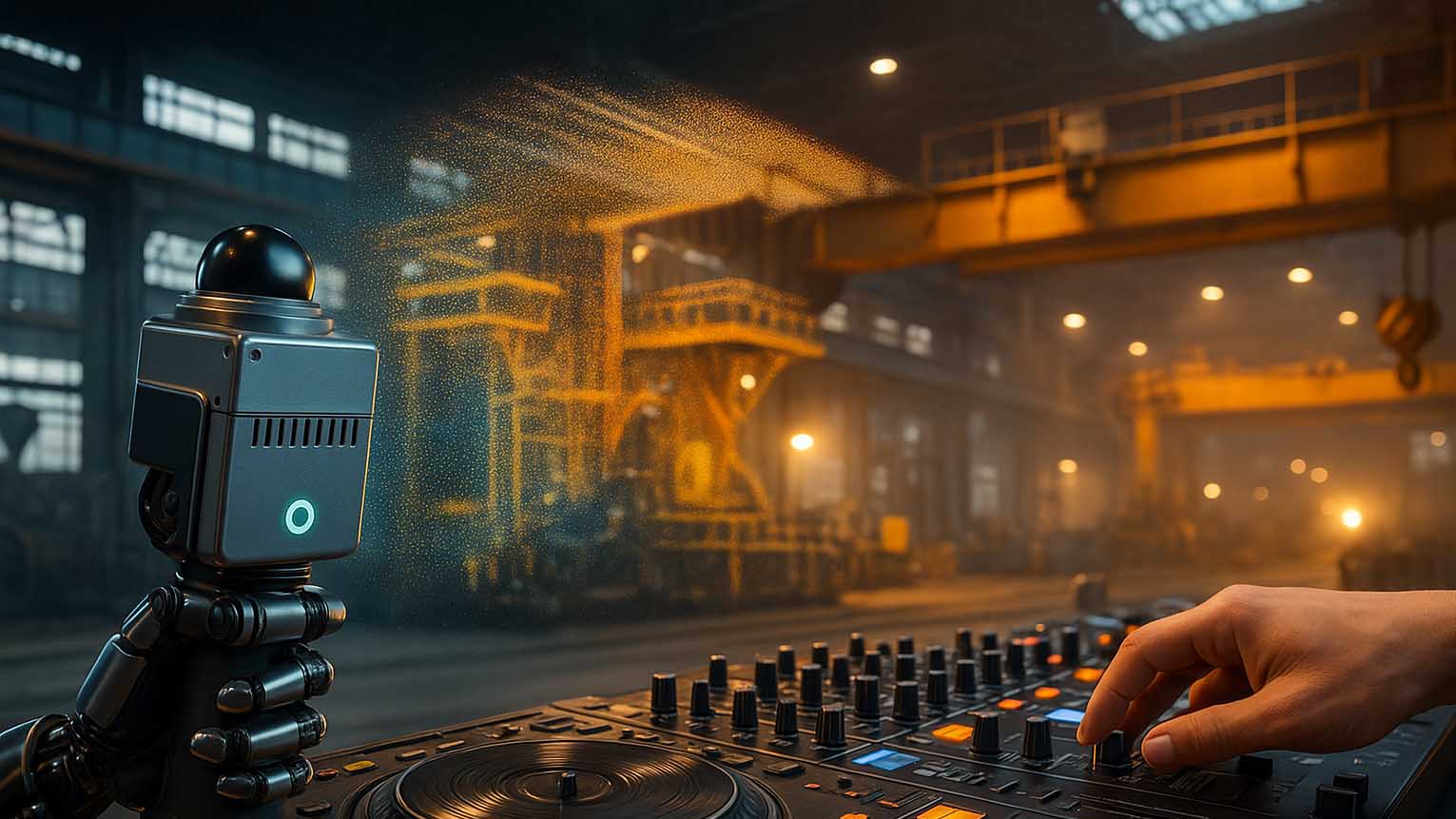
Explain immersively instead of just describing: content is understood and retained faster.
Image: © Ulrich Buckenlei | Visoric 2025
This creates a continuous process – from capture to processing to interactive presentation – connecting teams in marketing, engineering, and training.
VISORIC pipeline – From image to experience
VISORIC integrates the steps from capture to live experience into a seamless pipeline. This reduces time-to-value and minimizes risks in projects – whether for unique event moments or scalable enterprise applications.
Capture & data preparation → Photography/scan, quality check, light setup.
- Capture → Scan, photo, setup
- Gaussian Splatting → generation, optimization, runtime
- Experience → interaction, hardware, support
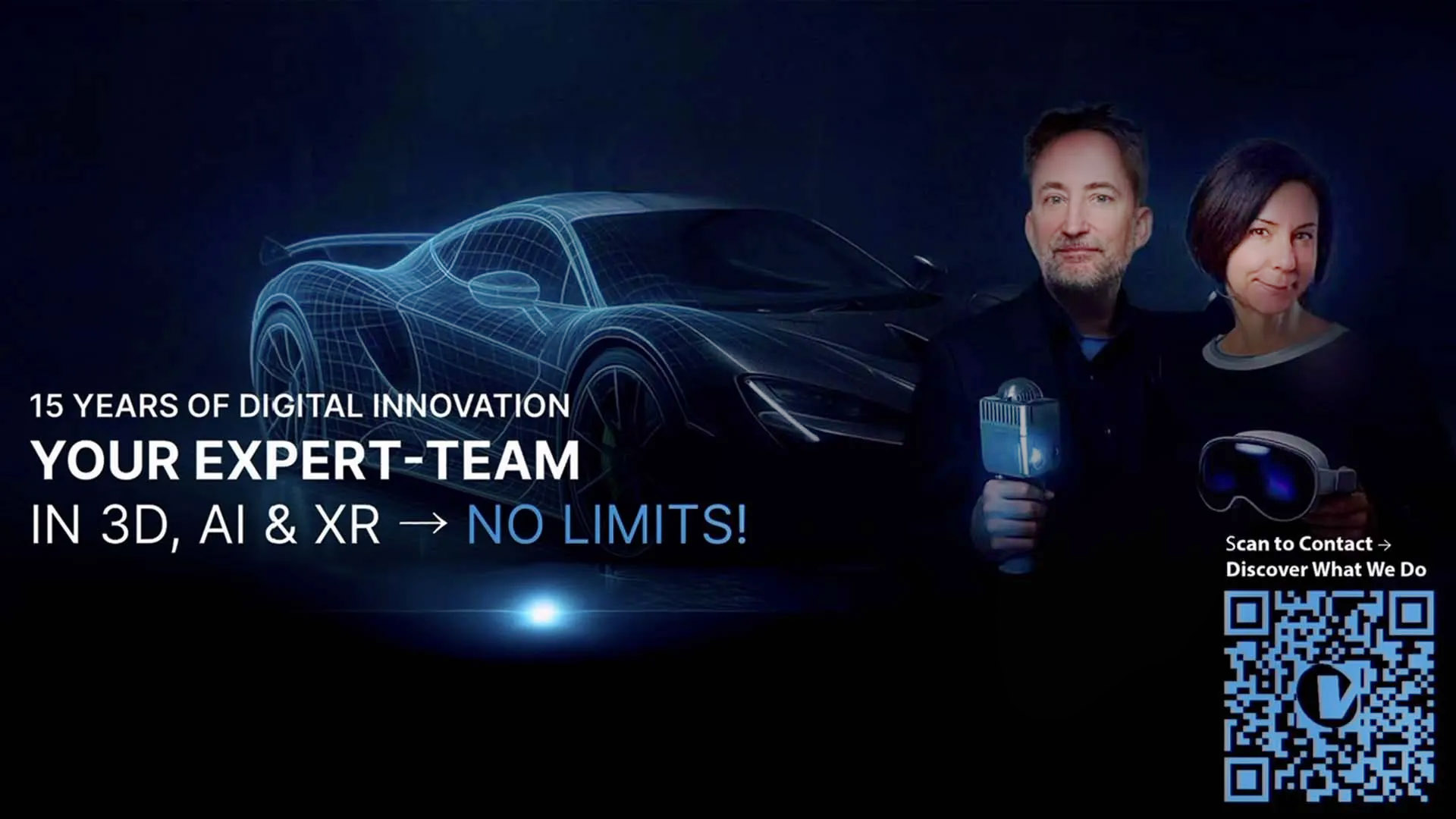
VISORIC expert team: from capture to live experience from a single source.
Image: © Ulrich Buckenlei | Visoric 2025
Our strength lies in combining 3D, real-time graphics, interaction, and reliable implementation – tailored to brands, stages, and industrial processes.
Pragmatic entry: start small, think scalable
Successful projects begin with focus: a clear use case, a defined asset, a measurable effect. From this emerges a reusable library of content and building blocks that grows step by step.
- Proof of value → one asset, one channel, one KPI (e.g. demo time, recall, conversion)
- Reusability → assets for show, web, training, trade fair
- Scaling → standardize processes, prepare infrastructure
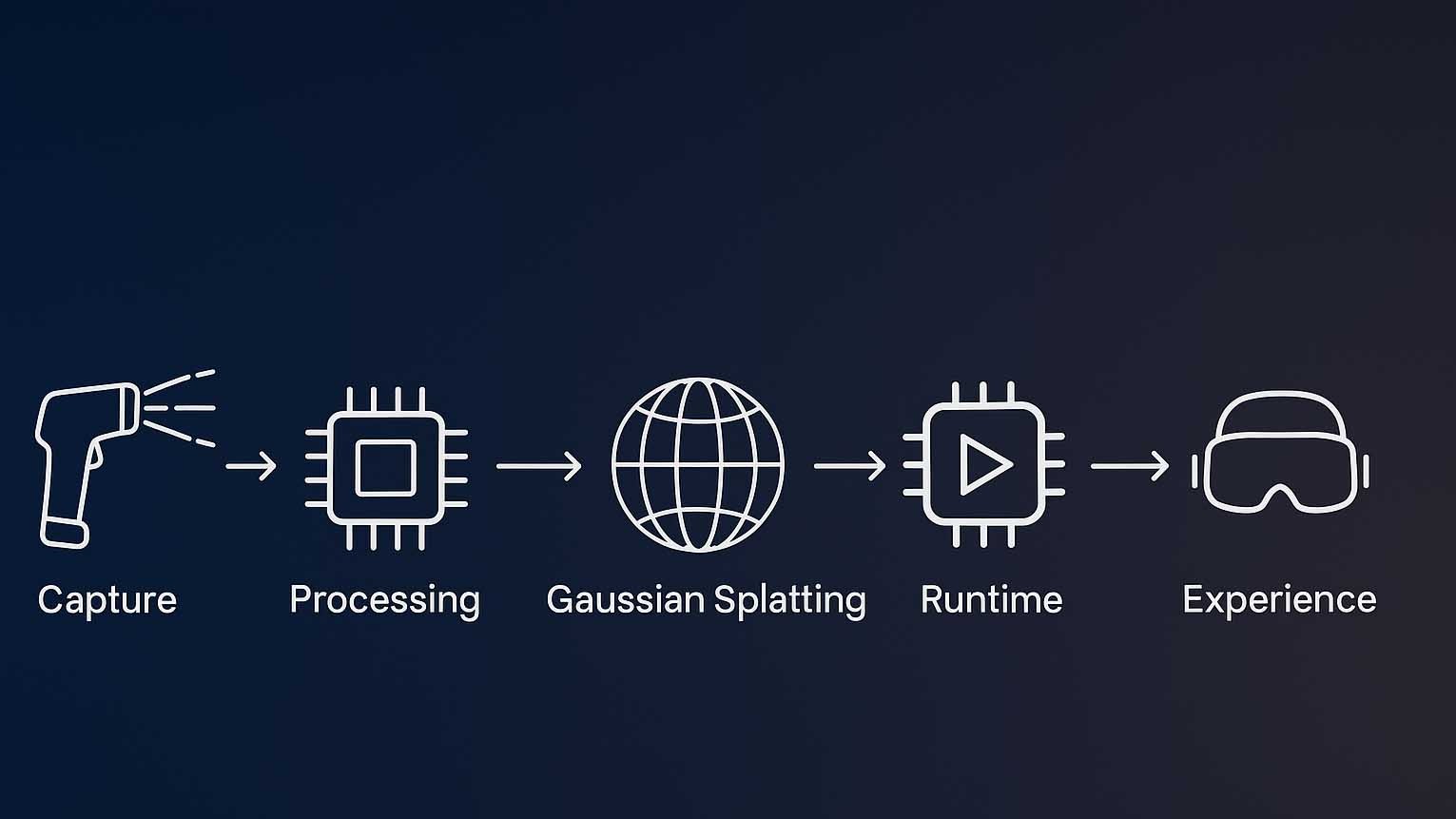
Scale step by step: first prove impact, then expand assets and channels.
Image: © Ulrich Buckenlei | Visoric 2025
This turns an idea into a reliable process – with clear milestones, solid quality assurance, and measurable benefits.
Diagram: From capture to experience – the GS workflow chain
The following schematic illustrates the end-to-end process: capture (photo/video/scan), data preparation, Gaussian generation, optimization for the target runtime, interaction, and deployment on stage, web, or device.

Schematic pipeline: Capture → Processing → Gaussian Splatting → Runtime → Experience.
Source: Visoric, based on “3D Gaussian Splatting for Real-Time Radiance Field Rendering”, Kerbl et al., 2023
What matters is the clean handoff between steps. Small quality gains at the beginning (e.g. lighting, angle, resolution) pay off throughout the entire process.
Diagram: Impact in metrics – speed and experience
Gaussian Splatting shortens the time to an experience and enhances perceived quality in live and business settings. The schematic curve illustrates the relationship between preparation effort, time-to-first-experience, and experience quality.
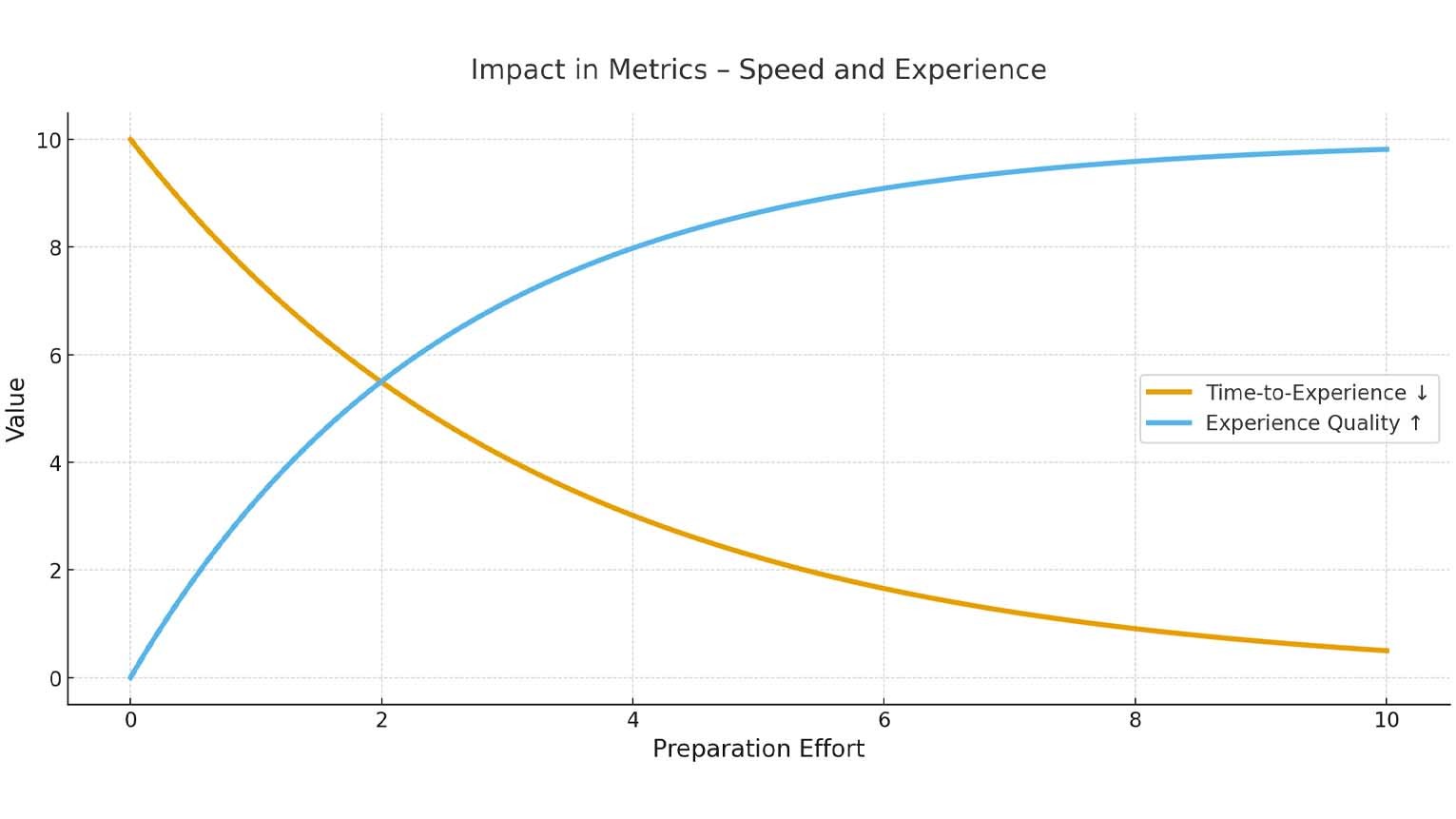
Time-to-experience decreases, experience quality increases – especially in interactive scenarios.
Source: Visoric 2025; background literature including Kerbl et al., 2023
In practice it becomes clear: shorter preparation and faster iteration increase relevance for stage, sales, and training – with stable rendering quality.
Live demo with Gaussian Splatting
The sequence shows how quickly a capture turns into a live-controllable 3D experience – and how content can be applied on stage and in industrial use cases.
Video: © Elia Guderzo I Analysis & Text: Ulrich Buckenlei 2025
Note: Replace the video link if needed with the LinkedIn version of your performance or a current demo video.
Contact the VISORIC expert team
Do you want to use Gaussian Splatting for stage, showroom, training, or engineering? The VISORIC team in Munich supports you from the first idea to live deployment – practical, reliable, and with clear results.
- Consulting & concept → tailored use cases, MVP plan, effort & timeline
- Production & integration → capture, GS pipeline, interaction, hardware/runtime
- Operation & scaling → support, asset library, roll-out across channels & locations
We look forward to your project – and to turning data into experiences.
Contact Persons:
Ulrich Buckenlei (Creative Director)
Mobile: +49 152 53532871
Email: ulrich.buckenlei@visoric.com
Nataliya Daniltseva (Project Manager)
Mobile: +49 176 72805705
Email: nataliya.daniltseva@visoric.com
Address:
VISORIC GmbH
Bayerstraße 13
D-80335 Munich
